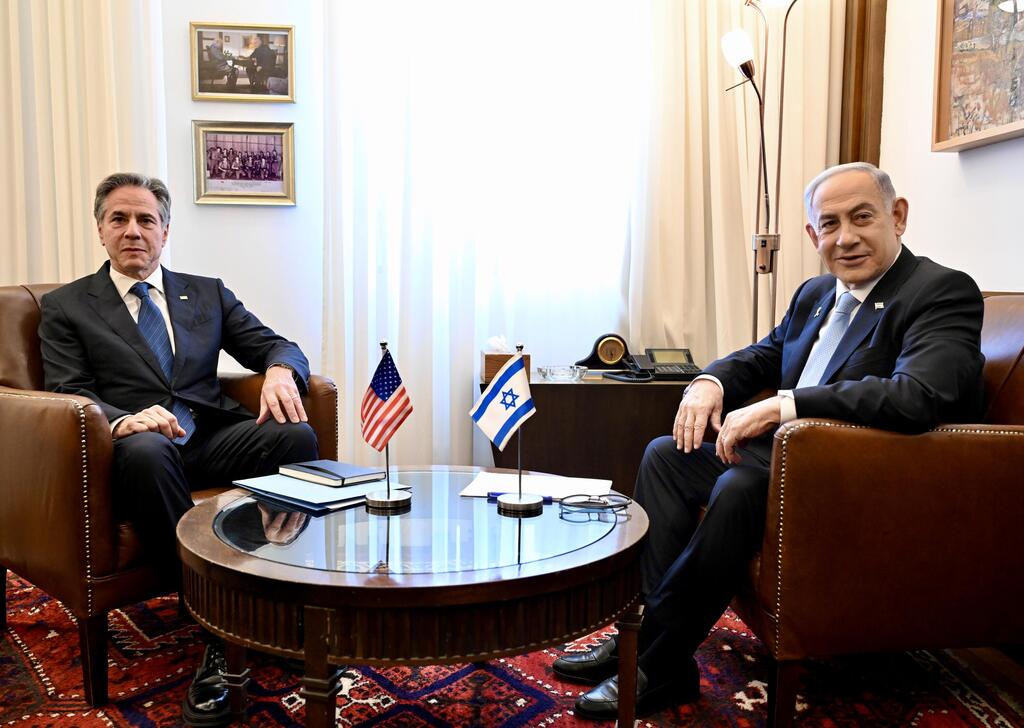Getting your Trinity Audio player ready...
U.S. President Joe Biden, who is on vacation with his family, spoke Wednesday with Prime Minister Benjamin Netanyahu and demanded that he be flexible on the issue of the Philadelphi Corridor. His vice president and Democratic presidential candidate Kamala Harris joined the conversation.
The White House issued a readout of Wednesday's telephone conversation Biden and Netanyahu. According to the readout, the two leaders "discussed active and ongoing U.S. efforts to support Israel’s defense against all threats from Iran, including its proxy terrorist groups Hamas, Hezbollah, and the Houthis, to include ongoing defensive U.S. military deployments." The White House said that Biden "stressed the urgency of bringing the cease-fire and hostage release deal to closure and discussed upcoming talks in Cairo to remove any remaining obstacles."
The aim of the call, according to onservers, was to persuade Netanyahu to soften his stance on the deployment of forces in the Philadelphi Corridor. Biden is working to convince the prime minister to be flexible with regard to his demands regarding the axis, while Netanyahu insists on maintaining the presence of the IDF there; the U.S. is demanding a significant drawdown of the forces during the first phase of the deal, and a complete withdrawal in phase two. To bolster these efforts, Biden has dispatched Brett McGurk, his special envoy to the Middle East, to Cairo, in hopes of laying the groundwork for the summit and resolving the contentious Philadelphi issue.
Antony Blinken's press conference
The head of the IDF strategy division, Major General Eliezer Toledano, tried at the beginning of the week to show Egypt maps of the points where IDF forces will remain in Philadelphi, but Cairo refused to accept the maps, and the delegation returned to Israel.
According to sources, the mediators have not yet announced the cancellation of the summit in Cairo, but its very convening is a big question mark, and even if it is convened the chances that it will end in a deal are "very low," they say. If it does take place, it will meet on Friday and Saturday.
However, the trajectory of these negotiations has been sharply disrupted by U.S. Secretary of State Antony Blinken, whose recent comments were seen by some observers as a severe misstep. Blinken's assertion that Netanyahu had accepted the mediation proposal, placing the onus on Hamas, was met with criticism from negotiation insiders. They described Blinken's move as a "serious foul," reflective of "naiveté, amateurishness, and a lack of understanding." His optimistic tone, they argue, was politically motivated to ensure a smooth Democratic convention in Chicago, yet it left Israeli negotiators exasperated.
Blinken's remarks, they claim, effectively sabotaged the deal. By aligning with Netanyahu, he inadvertently bolstered the prime minister's position, which hinges on the contentious issue of Israeli military presence in the Philadelphi Corridor – a stance both Egypt and Hamas oppose. The expectation was for Blinken to encourage compromise, but instead, his comments have distanced Hamas and imperiled the summit.
The insistence on Israeli presence in the Philadelphi Corridor remains a formidable obstacle. Security officials in Israel, including the IDF chief of staff, believe a military withdrawal is feasible, but Netanyahu's unwavering stance, coupled with Blinken's perceived endorsement, has stymied progress.
1 View gallery


Netanyahu and Blinken meeting in Jerusalem
(Photo: David Azagury, U.S. Embassy Jerusalem)
Negotiations now cling to a faint hope of dialogue, yet the prospects remain dim. Insiders emphasize that, without concessions on the Philadelphi deployment, the deal is effectively dead. The American mediation proposal, vague and lacking in detail regarding Rafah and the Philadelphi Corridor, has inadvertently torpedoed the negotiations. Had a deal been reached, it could have had immediate ramifications for the situation in the north. Yet, as it stands, the American approach has left negotiators questioning the viability of any agreement.






